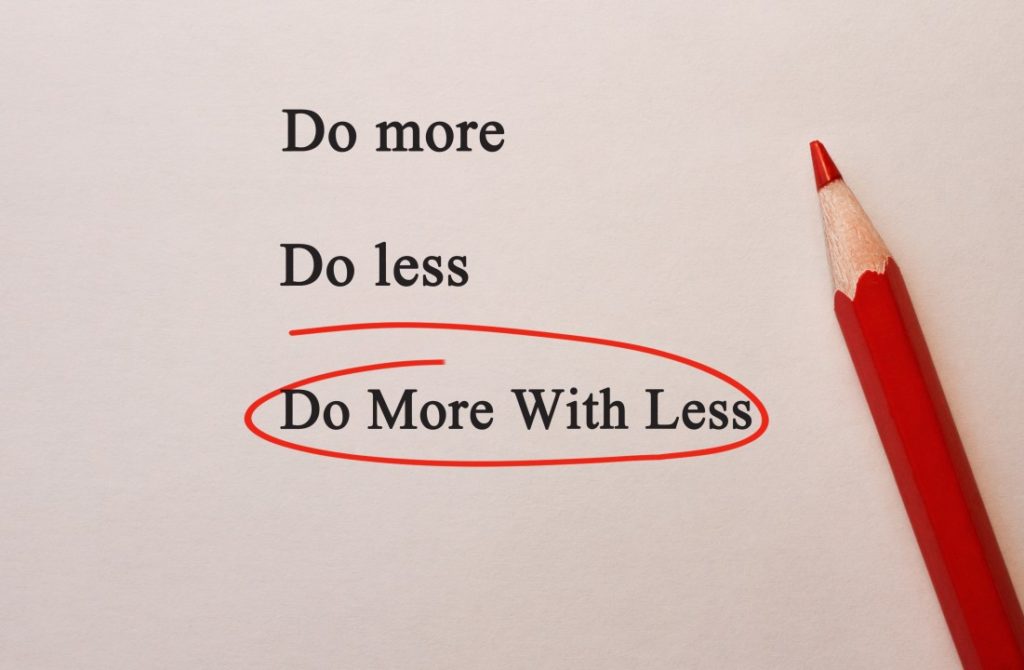10.14.19
The minimalist organization
Karl R. LaPan, President & CEO, The NIIC

More people and organizations are coming to terms with the idea that more of anything does not necessarily lead to greater satisfaction. You see this manifested in countless journal articles, TED talks, blogs, documentaries, and self-help books. Enter minimalism. What can you, as a business builder, take away from this mindset?
Embrace quality, not quantity
No, you don’t have to sell all your worldly possessions and live in a tiny house. Minimalist living is concerned with minimizing distractions to maximize more critical pursuits. In other words, it can be said that minimalism prompts us to re-evaluate our priorities. How can we live more intentionally and even do more with or on less?
Think small
Often, leaders subscribe to the notion that bigger is always better. As such, they look to expand product offerings, scale, and ratchet up the workforce in hopes of turning a more substantial profit and becoming a household name. While they may be worthy pursuits, the flip side of more is seldom considered.
For example, more exposure means your brand is under increased scrutiny. You also might have to contend with more competition and attempts to steal your trade secret or institutional knowledge. Further, many customers require more support, but rising costs don’t always equate to more robust profits.
Streamlined systems drive innovation
Sometimes companies outgrow products or customers. That’s why it’s necessary always to ask “why”? “Why are we doing this project or following X procedure, and what do we hope to get out of it?”
Ultimately by getting down (or back) to the basics, organizations can become nimbler and more efficient. This, in turn, enables them to innovate in a timely fashion according to market trends and achieve the objectives they had set out to do in the first place.
Steve Jobs, while a controversial figure, built a reputation for his “zen” approach to product design and operations. The Apple ethos became a case study for not only Silicon Valley, but for entrepreneurs, designers, and executives everywhere. Often, he was a focus group of one! Naturally, minimalism in practice will look different in every organization. But in general, a minimalist approach allows organizations to use the new-found time and money to improve – and make the most of – what they already have. Ultimately, minimalism creates space for the freedom we need to grow. So, in this sense, minimalism can mean more, not less.
Ongoing evolution
The minimalist approach is not an event but a constant pursuit. Therefore, it is prudent for leaders to routinely look for distractions in their culture or systems that can be minimized for the sake of investing in areas where growth provides value to you and your customers.
Naturally, minimalism in practice will look different in every organization. But in general, a minimalist approach allows organizations to use the new-found time and money to improve – and make the most of – what they already have.

